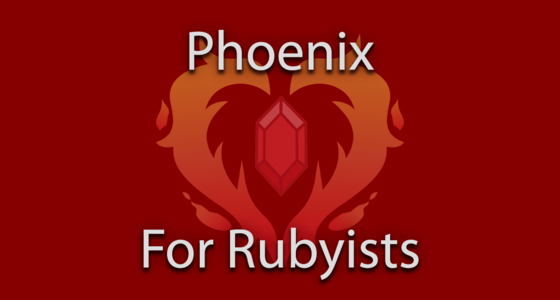Stage One The First Sip
Before we jump right into the framework, we need to at least know the basics of the programming language we're working with.
- Duration: 80 minutes
Phoenix Framework draws heavily upon important foundations in the opinionated web frameworks that came before it, like Ruby on Rails.

Before we jump right into the framework, we need to at least know the basics of the programming language we're working with.
One must crawl before one walks, and it all starts with basic types and procedural logic. Even if you're experienced in a wide range of programming languages, there's going to be a lot of stuff -- even at this basic level -- that may change the way you look at writing code forever.
Elixirs module system allows us to define layers of related functions. In this part of the course, we'll explore the concepts of modules, and the ability to reference code in one module from another.
Earlier we outlined and worked with several different types of data structures. Let's take a closer look at some ways
A Phoenix app can basically be boiled down to a function that receives a HTTP request, and returns a response. We'll begin with this premise, and start to understand the important parts involved in this process.
Testing ergonomics is perhaps the most impactful factor in determining whether writing tests is an enjoyable part of day-to-day development, or an annoying slog that's neglected until problems arise.
In this area, Phoenix does not disappoint. We'll focus on several useful patterns for unit and acceptance testing, with the aim of making tests quick, easy, maintainable and intuitive.
Data is an integral part of virtually any web application, and a great persistence library make a huge difference in performance and maintainability.
Thankfully, the Elixir ecosystem has us covered in spades. Ecto is a thin layer of functions that allow us to build composable queries, validate fields, and seamlessly transform records between our DB and application representations.
One of the places where Elixir and Phoenix leave the competition in the dust is support for soft real time programming. The ability to keep a lightweight Elixir process running for the duration of a user's time in our app, and holding some small amount of state, makes things far simpler for certain things than it otherwise would be.
Nearly every app we build these days requires some sort of authentication, and probably a user account to go along with it. Even if your app is an oddball and doesn't need this, user accounts provide us with a well-understood set of use cases that will serve as an excellent case study.
Let's put some of our newfound Phoenix knowledge into practice as we implement a secure user account feature set. The goal will be to reduce explicit management of authorization & authentication on a per-resource basis as much as possible.